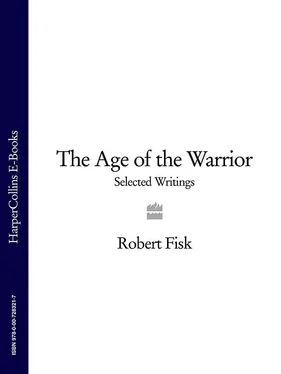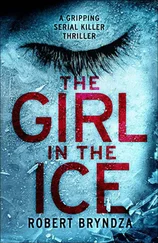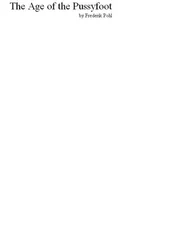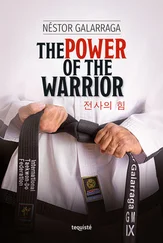I was seventeen when I first arrived in Newcastle upon Tyne. It was a city of heavy, black, nineteenth-century buildings, a spider’s web of iron bridges and smouldering steam locomotives, the air thick with coal smoke and red haze from the steel works at Consett. The news editor of the Evening Chronicle , John Brownlee, did his best to cheer me up. ‘You’ll be in our Blyth office, Bob, a bustling little coal town on the coast with plenty of life and lots of news.’ Brownlee was in estate-agent mode. Blyth was a down-at-heel collier harbour, smothered in the dust of doomed mines and a thousand coal fires. The slagheaps glowed red at night, the dying shipyards were bankrupt, pools of vomit lay splashed over the pavements outside the Blyth and Tyne and two dozen other pubs and clubs every Sunday morning. Even in summer, a kind of North Sea mildew settled over the town, a damp, cold cloth mixed with coal smoke that smothered all who lived there.
I was homesick and lonely and I was paid £17.50 a week, a third of which I handed over to Mrs Hamilton, my landlady at 82 Middleton Street, where I slept in a room 7 ft in length and just 5 ft wide with a single tiny gas fire. When I came home one day I found the Gas Board asking my landlady why there was no money in the meter; I had to explain that I didn’t earn enough to pay for the heating. So I spent all evening in front of the fire in the rotting old back-to-back Chronicle office in Seaforth Street, then walked home through the smoke at midnight and cowered under my blankets for warmth. I used to read history books on Sunday afternoons, wrapped in a heavy overcoat, sitting in the overgrown Victorian beach garden near the port.
But there were stories. I shared my digs with the gloriously named Captain Fortune, deputy harbour-master of Blyth, whose moment of glory arrived when a Cold War Polish fishing- fleet put into port during a storm. And stayed. And stayed. When Fortune boarded the first trawler to demand its immediate departure, the Polish captain slapped him round the face with a massive, sharp-finned fish. I warned readers that the Victorian wooden staithes from which freight trains would unload coal into the colliers were in danger of collapse. I staggered through feet of water deep under the Tyne to watch two teams of miners hack their way through to each other in the first stage of what was to be Newcastle’s first under-river motorway. I catalogued the massive overspending on Blyth’s spanking new power station. I recorded the classical learning of the Blyth town clerk as he used quotations from mythology to defeat motorway extension objectors. The Golden Fleece was on his tongue. When the council failed, its plans were – of course – ‘put on ice’.
And I covered the courts. Some cases were truly pathetic. There was the mother whose son, a Morpeth male nurse, died hanging from the back of his hospital bedroom door; she wailed outside the court as officials gently explained to her that her son had stood on a pile of books with a noose round his neck to ‘stimulate sexual glands’. The books had slid apart and the boy had been left choking to death on the door. Then there was the teenager arrested for stealing a toaster from his grandparents. They wanted him imprisoned. His real ‘crime’, it quickly turned out, was that he was homosexual – ‘indecency with a male’ was our journalistic cliché – and he was swiftly remanded. On his way out, he made a pass at the most senior policeman in all Blyth.
And we wrote in clichés. Always clichés. When the police were seeking a hit-and-run driver, they either ‘spread their net’ or ‘narrowed their search’ or ‘stepped up their hunt’. Company directors were ‘bosses’, scientists were invariably ‘boffins’, officials were always ‘chiefs’, storm-battered ships inevitably ‘limped’ into port. Suicides were always tragic, brides always beautiful, angry councillors were ‘hopping mad’ and protesting villagers would always ‘take to the streets’. Those who discovered bodies were ‘horror-struck’ or ‘mystified’; the latter applied to the construction gang building a new Blyth bypass who excavated dozens of corpses – all in their Victorian Sunday best – and thought they’d discovered a mass murder before realising they were digging up an old cemetery. Needless to say, Tory election candidates always ‘lashed out’ at the sitting Labour MP, Eddie Blythe.
They actually taught us to write like this. There was a whole Thomson Newspapers school of journalism in Newcastle which I and my fellow ‘cub’ reporters from other Chronicle district offices were ordered to attend once a week – much to the disgust of my senior reporter in Blyth, Jim Harland, a Sean Connery lookalike with a reservoir of immense kindness and – for really stupid reporters – volcanic anger. ‘You learn journalism on the job, not listening to that bunch of wankers,’ Harland once told me. But sure enough, every Thursday morning, I’d arrive in Newcastle on a pre-war double-decker bus from Blyth – the interior filled with a suffocating fog of blue cigarette smoke – wolf down an egg sandwich at the aptly named Rumbling Tum café and endure hours of shorthand, legal advice and clichés.
The best stories could be told in 400 words, we were told. All the facts in the first para, plenty of punchy lines, equal time to all parties in a dispute and a good ‘kicker’. No anger, no passion, no suggestion that there was right or wrong. I was reminded of Joe Friday in Dragnet . ‘Just the facts, Ma’am, just the facts,’ he’d yell at the broads. We were given ‘story-lines’. Write the intro to the following: a retired soldier – who once took part in the Normandy landings – was blaming the local council because his wife had disappeared after seeing a ghost in her council-supplied house. Answer: ‘A mystified D-Day vet lashed out at council chiefs last night after his terrified wife fled “phantoms” in their council home.’ Anything that moved away from this rubric, that suggested a more subtle, nuanced approach – perhaps the old soldier was suffering from shellshock or his wife was mentally ill or perhaps the ghosts were real – was wiped out. Our Thomson ‘trainers’ quickly decided that a reporter called Simon Winchester would never make the grade. He was too imaginative, too thoughtful, too critical in his approach. Simon, of course, went on to become the best Guardian correspondent in Belfast. We were supposed to write stories the readers would easily ‘understand’. Readers were in a hurry, tired, often not well educated, we were taught. Having talked for hours to miners and part-time shipyard workers and firemen and cops and landladies, I didn’t think our readers were that dumb. I thought they might like something more than our clichés. But not according to the journalism teachers. We had to have ‘key’ words. Lash out. Bosses. Phantoms. Chiefs. Terrified.
Yes, we had to be ‘trained’. I still remember the guffaws of our ‘Stop Press’ printer in the Blyth office when he read my report of a launching in the local shipyard by the wife of the chairman of the Central Electricity Generating Board. ‘Mrs Smith smashed the Champagne against the hull of the vessel,’ I had written, ‘and the workers cheered as she slid down the slipway.’ Then there was the Tory election candidate who, in my interview, ‘smiled as he spoke of his many and varied pastimes’. Harland collapsed. ‘You’re a fucking innocent, Bob,’ he screamed. ‘What do you think our readers will make of “many and varied pastimes”?’
But I also remember what the Chronicle didn’t say. My reference to the weeping mother outside the Morpeth coroner’s inquest was cut from the story. The tale of Captain Fortune’s fish never made it – the paper needed a quote from the longdeparted Polish trawler captain to ‘balance’ the story. My report on the dangerous state of Blyth staithes was followed by a formal apology to the National Coal Board – inserted by Chronicle editors without any reference to me – to the effect that the wooden pier met all safety standards. A wolfish smile crossed my face weeks later when a roar of splintering wood and exploding steam shook the Blyth office. A tank engine – its driver mercifully unhurt – had crashed down through the flimsy old pit-props and settled precariously on the edge of the dock. We reported it straight – no reference to my previous story, nor to the grovelling apology we had carried only weeks earlier.
Читать дальше












